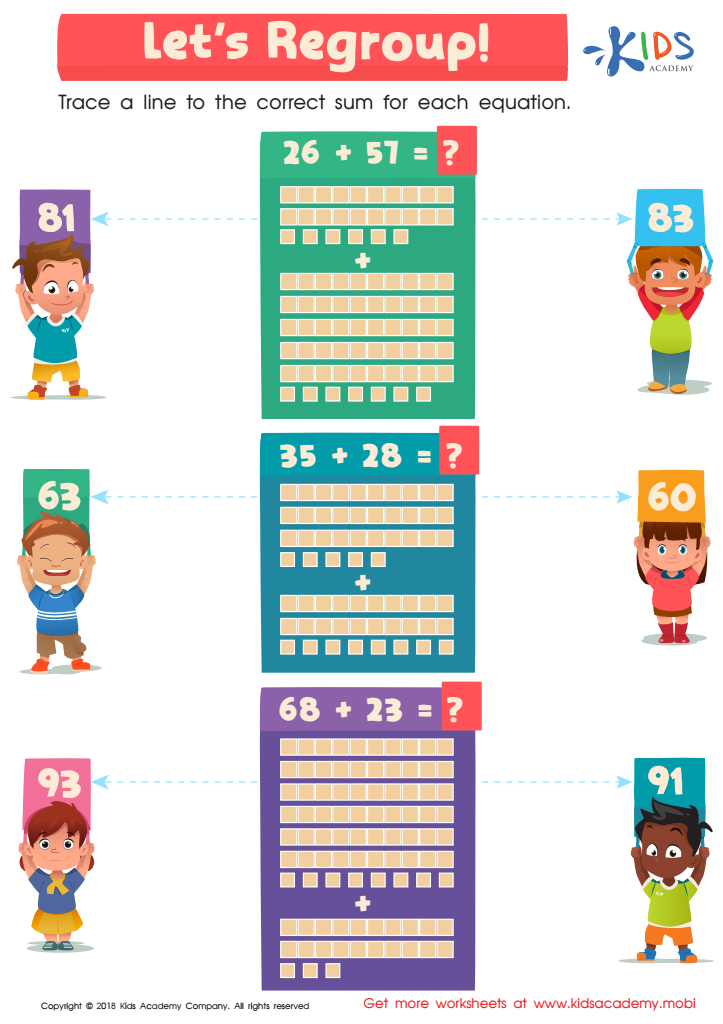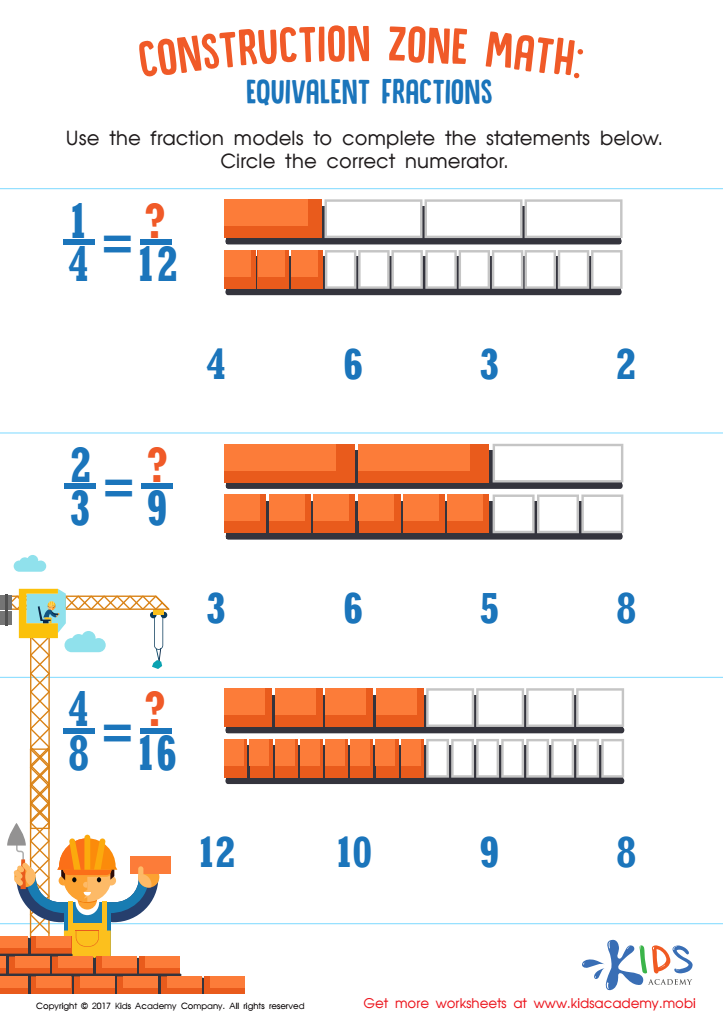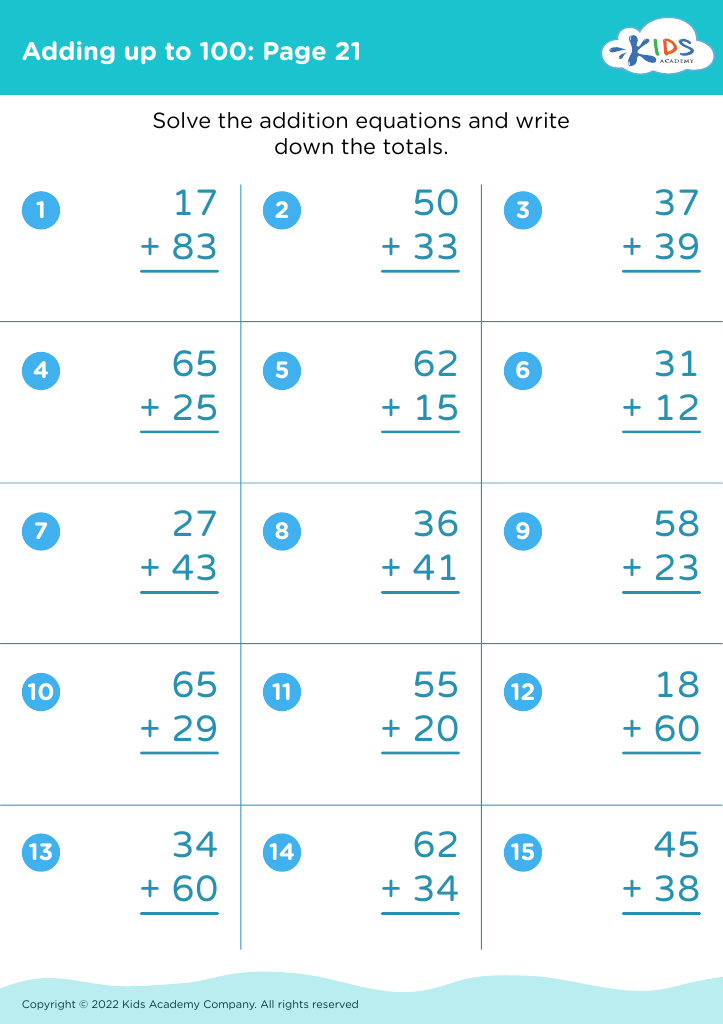Practicing Arithmetic Skills Worksheets for Ages 6-9
3 filtered results
-
From - To
Enhance your child's math proficiency with our engaging Practicing Arithmetic Skills Worksheets, specially designed for ages 6-9. These interactive worksheets help young learners build a solid foundation in essential arithmetic operations, including addition, subtraction, multiplication, and division. Through fun exercises and colorful illustrations, children will develop critical problem-solving skills while enjoying the learning process. Our user-friendly format allows for easy navigation, ensuring successful comprehension and retention. Perfect for home or classroom use, these worksheets make math practice enjoyable and effective. Unlock your child's potential in arithmetic with our thoughtfully crafted resources today!


Let's Regroup Worksheet


Equivalent Fractions Worksheet
Practicing arithmetic skills for children ages 6-9 is crucial for a variety of reasons. At this developmental stage, children are often introduced to foundational mathematical concepts such as addition, subtraction, multiplication, and division. A strong grasp of these skills not only serves as a building block for advanced mathematical understanding but also enhances critical thinking and problem-solving abilities.
Parents and teachers should recognize that the early years of education significantly influence a child's confidence and aptitude in mathematics. Consistent practice helps solidify concepts, reducing anxiety and encouraging a positive attitude towards math. Furthermore, arithmetic skills translate into everyday life scenarios, from telling time and managing money to coordinating activities and following instructions, enhancing overall cognitive development.
Engaging in arithmetic practice also promotes collaboration among peers when done in a group setting, fostering social skills and teamwork. By focusing on these foundational skills, educators and parents can nurture a love for learning and create a supportive environment where children feel comfortable exploring mathematical ideas. In summary, practicing arithmetic is essential not just for academic success, but also for instilling essential life skills that benefit children well into their future endeavors.
 Assign to My Students
Assign to My Students




















